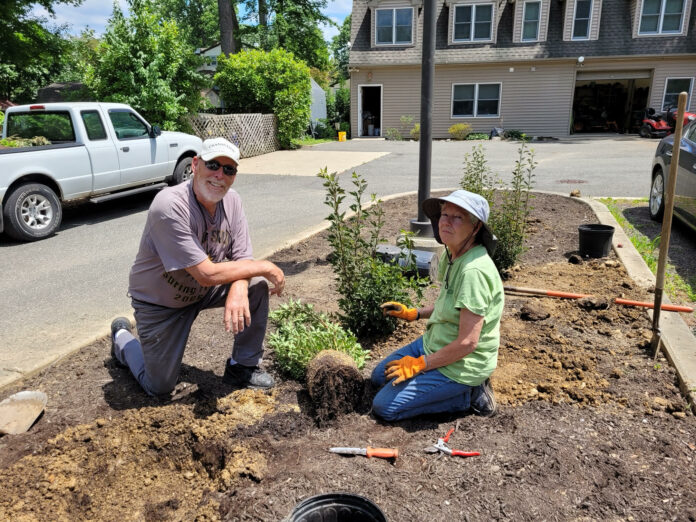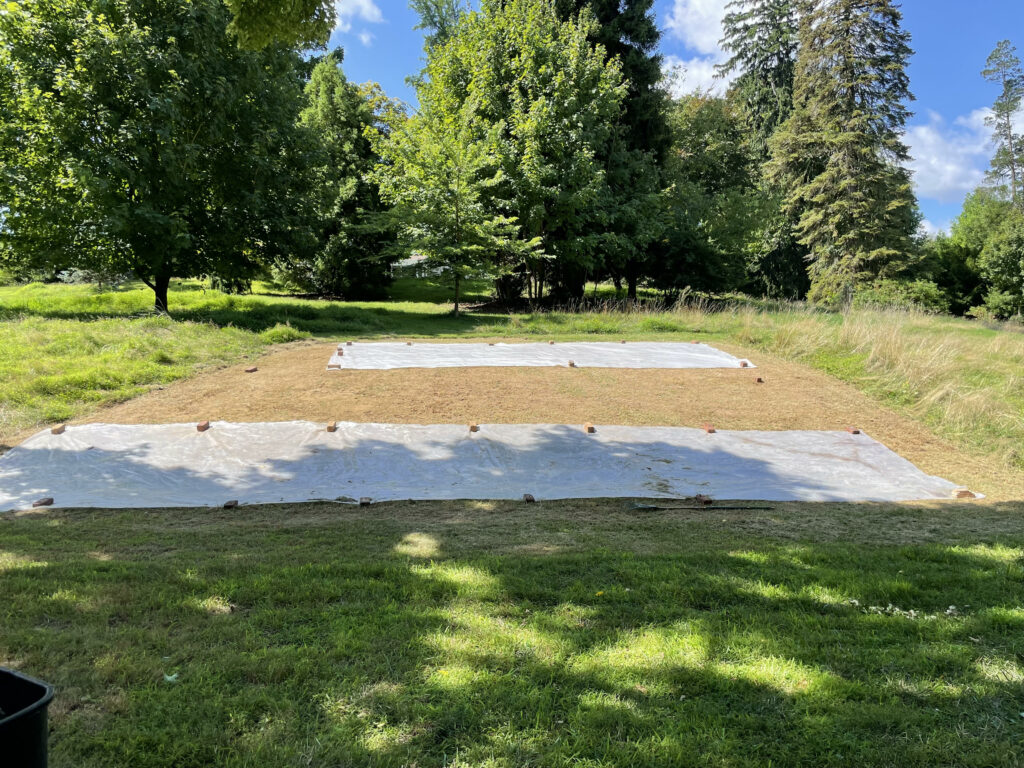
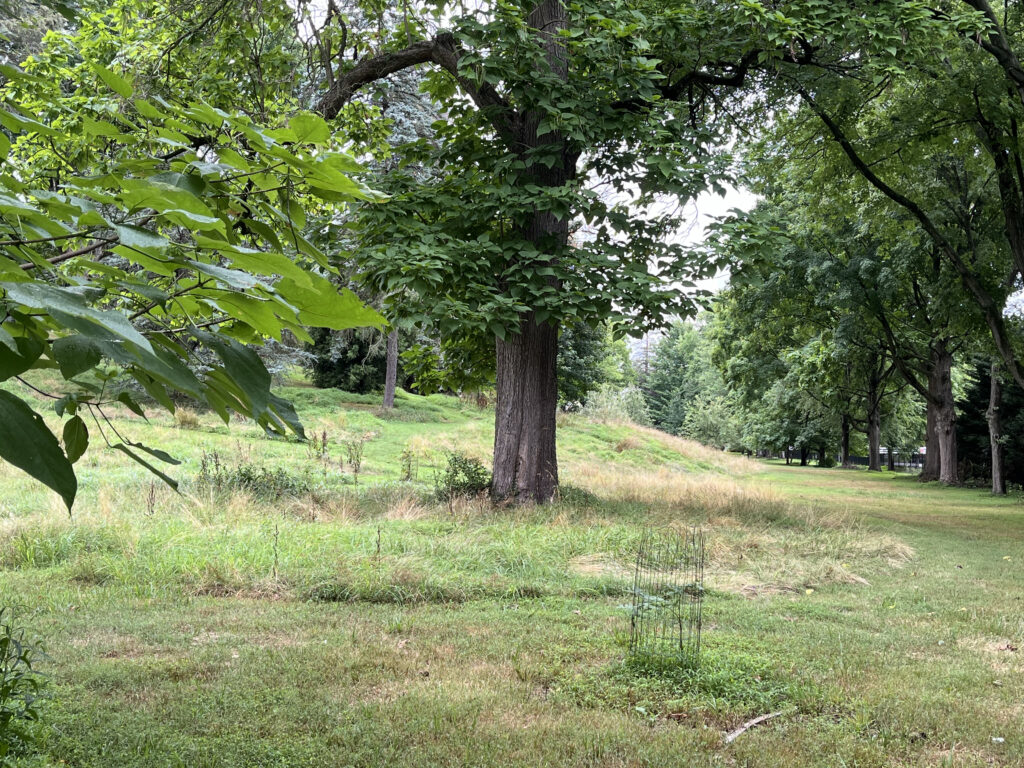
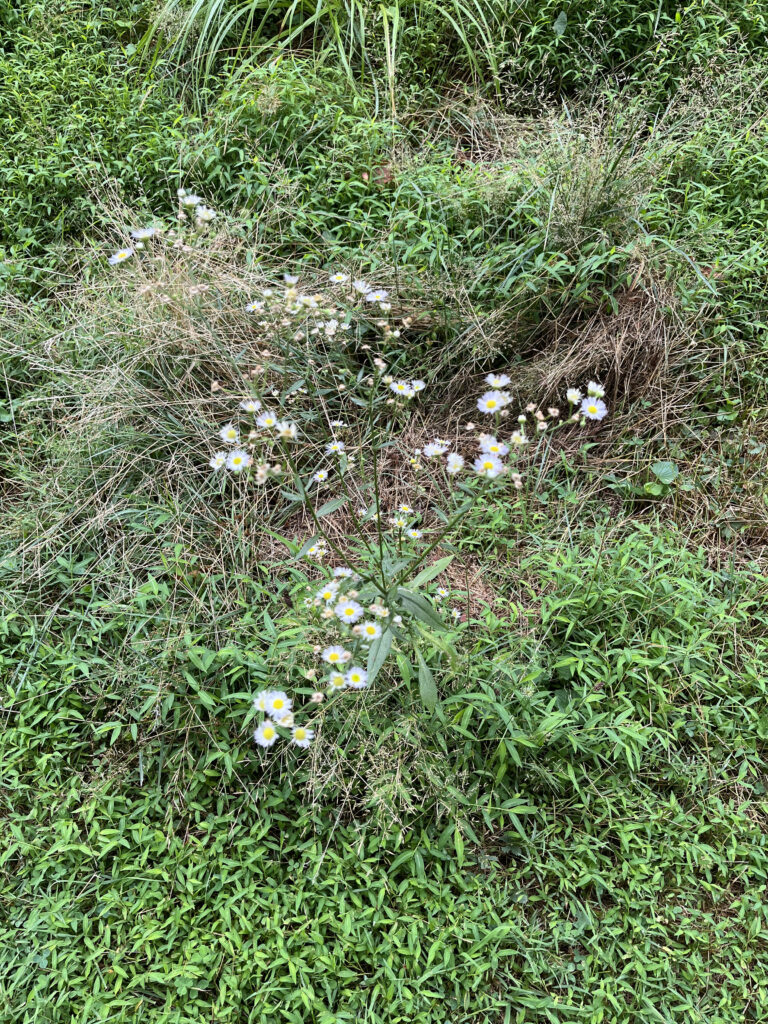
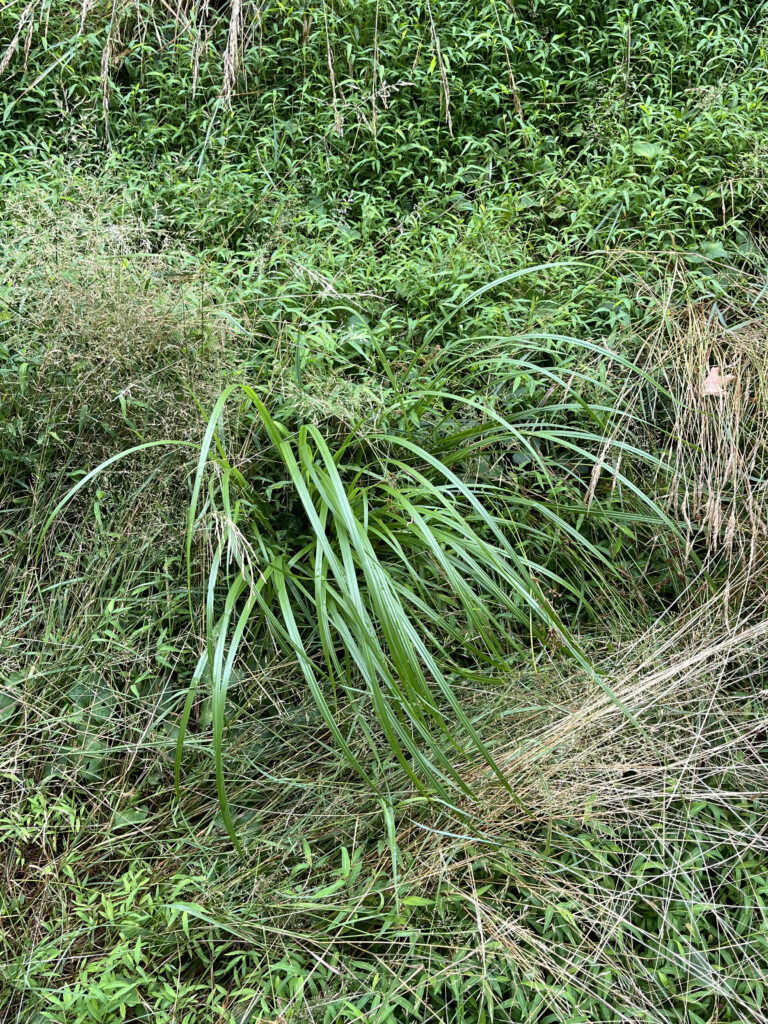
By Brandon Fey
Northeast Times
Cranaleith Spiritual Center is a retreat and conference center on Proctor Road in Somerton that operates on a 10-acre plot of land comprised of fields and gardens often used in several retreat activities. The site is maintained by volunteers who are committed to upholding the natural beauty of the property, while also ensuring that the ecological value of the landscape is at its full potential. One such volunteer is Fred Trainer, who is a member of the historic Trainer family that donated the property that became Cranaleith in 1998.
Fred is a proponent of eco-spirituality, which he follows as a guide to his work at Cranaleith. As he explained, “Eco-spirituality is the notion that we are stewards of the earth. The earth is God’s creation. We’re God’s creation. So it’s incumbent on us to take care of all the creatures and not wipe out species by overconsuming.” He then referenced a honeybee crawling on the flower and shared how it connects to his philosophy. “We look at these bees and we say, ‘They’re good guys.’ They’re doing something in this creation, God’s creation, and they’re part of multi-levels of organisms that thrive and grow and have cycles. We want to support those guys.”
He mentioned that there is a contemporary conflict between landscaping practices and maintaining local ecology. Chemicals are often used to rid lawns and gardens of unwanted weeds, but they can be poisonous to helpful insects like the honeybee while killing more plants off of which bees could feed. “So eco-spirituality says, ‘Let’s stop.’ We’re supposed to be stewards of the planet, and can find ways to have relatively nice lawns without having to use all these poisons.” Fred believes that the key to creating a landscape that is both aesthetically pleasing and environmentally sustainable lies in supporting pollinators.
Pollinators are animals (predominantly insects like bees, butterflies, beetles and moths) that move pollen between flowers, encouraging greater fertilization and proliferation. They can be supported through the creation of pollinator meadows, which contain a high density of flowering plants upon which pollinators thrive. Meadows, bordered by grass, can be attractive and well-manicured, without requiring excessive mowing or chemical treatment. Fred believes that planting meadows around Cranaleith will greatly contribute to the beauty and environment of the site while eliminating the need for toxic chemicals.
Before planting anything new, it is important to understand what plants are already growing in an area. Since the late 20th century, North America has experienced an unprecedented influx of invasive plant species. These are plants native to distant parts of the world that have been artificially introduced into the local environment. Unlike native plants, invasive species have not evolved alongside local plants and animals. They are therefore given an unnatural advantage with which they propagate rapidly, outcompeting their native counterparts. Many invasive plants are toxic to people and animals, stifle biodiversity, and can cause issues with erosion given their uncontrolled growth.
Cranaleith is not immune to the presence of invasive species. Because of this, Fred has employed different methods to help him understand the seed bank (the cache of dormant seeds a few inches beneath the soil) of the property. The first approach involves isolating a section of grass and allowing it to grow unimpeded. This allows the grasses and plants in that section to compete so it can be understood which plants have an advantage. The sections are then cut and invasive plants are uprooted, while helpful native ones are left to remain.
Another method, called solarizing, involves mowing a section of grass that is then covered in a clear plastic sheet. This practice, usually done during the summer, allows the sun to bake the plants and seeds beneath the plastic, preventing them from growing back. This method is effective at halting the growth of invasive species but also kills whatever native seeds are present in the soil. After an area has been solarized, new seeds are planted that can sprout free of competition.
These practices involve a deliberate process that can take several months to complete. Over that time, the grass sections can appear to be disordered and neglected by those who are unfamiliar with the practices. Cranaleith has received questions from people passing by on Edison Avenue, bewildered by the sight of patches of overgrowth and plastic sheets. Fred hopes that once he and the other volunteers can begin removing the growth and raking away the baked grass, people will begin to understand and appreciate their effort to replace them with meadows.
“It’s about giving the seeds for the good guys the best chance to compete against the seeds that are in that soil because there are seeds in there that are going to want to come up and do their thing,” Fred said. “If we didn’t cut it down, and just threw down the seeds, they would have a really hard time competing against what’s already established.”
As he traversed the property, Fred identified several common invasive plants that populate the area. Physically removing invasive plants and then preventing them from reappearing takes a considerable amount of work. Fred and other volunteers have spent several days over the summer digging up roots in an effort to reclaim the landscape. Cranaleith also holds occasional burns, in which invasive plants are burned in fire pits after having been dug up to prevent their seeds from spreading. The amount of time and energy required raises another complicated question of ecology.
Not all invasive plants are entirely problematic. Some spread at a slower rate than others and can even provide certain environmental benefits, including nectar for pollinators. “So the question is,” according to Fred, “does this have a place here?” Some species such as Japanese stiltgrass and crimson fountain grass are extremely aggressive and require a sustained effort for effective removal, while others are not as pressing of a concern and can be left to support pollinators until more meadows are planted. “So you have good guys, bad guys, and a lot in between. Some of the bad guys do some good things, but they are still bad guys essentially and they need to be taken out,” he said.
In addition to the pollinator meadows, Cranaleith uses bioswales to control stormwater. A bioswale is a dense collection of plants in a depressed area at the bottom of a hill that is designed to absorb water from excessive rainfall. Bioswales are useful in preventing flooding and limiting erosion and pollution as a result of drain water. When planting meadows and bioswales, the volunteers select a variety of plant species that will bloom during different seasons. By doing this, Cranaleith is able to support pollinators and control drainage throughout the year.
Fred is hopeful that with the work of the volunteers, Cranaleith will soon be closer to fulfilling its ecological ambitions. The center is planning to hold a “Come see what we’re doing day” sometime next spring for neighbors to learn about the planting initiatives firsthand.
One of the attributes of a pollinator meadow is that it attracts a panoply of living things, including insects, birds and even mammals. While from afar it may appear similar to an ordinary garden, these patches of plants are microcosms of the greater environment, teeming with movement and vibrance at the smallest scale. “You just sort of defocus your eyes,” says Fred, “and you can see all kinds of things happen.” ••



